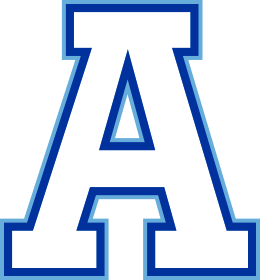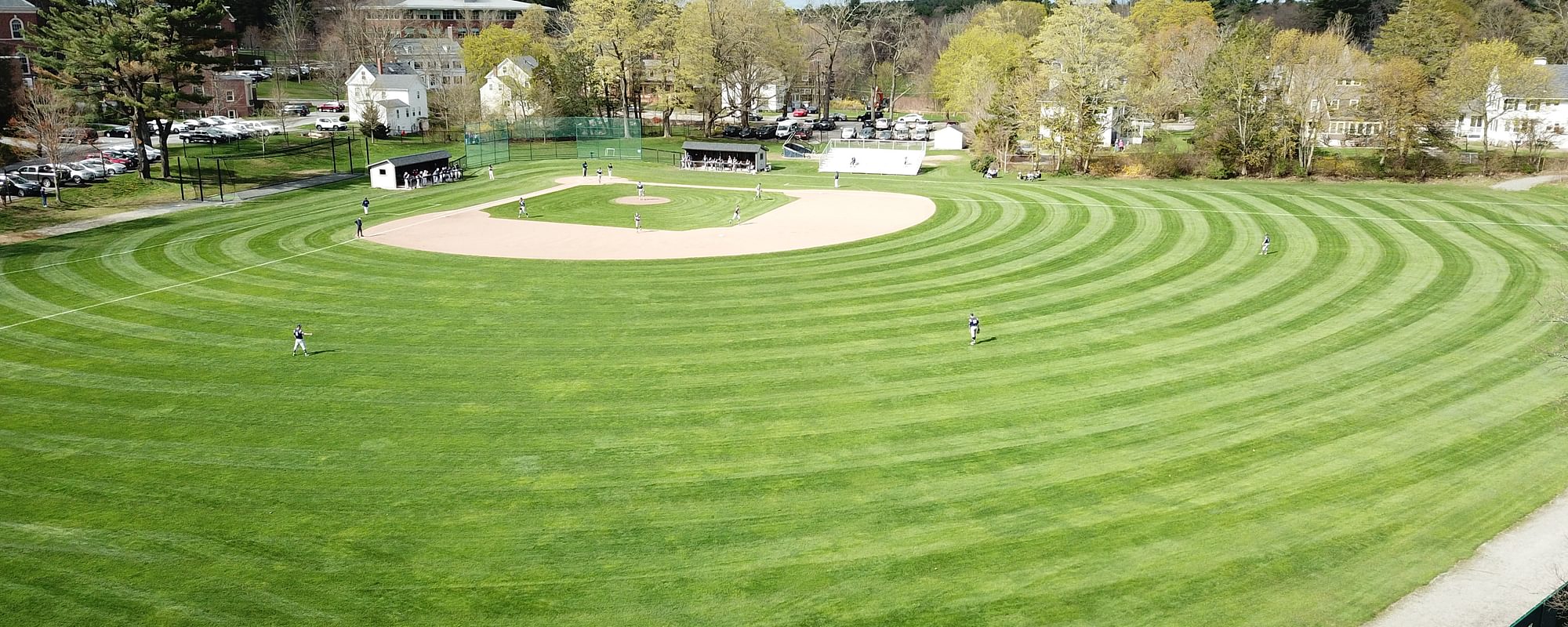Alumni
Prominent Andover Alumni with Connections to the Game of Baseball
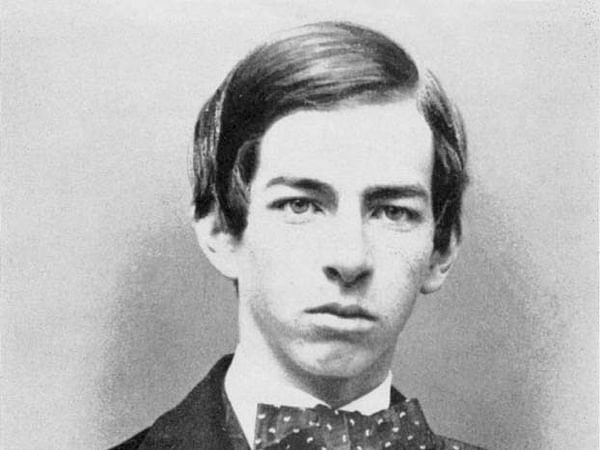
Charles Phelps Taft, class of 1860
Charles Phelps Taft (class of 1860) sat for one term in Congress and helped his brother, William Howard Taft, win the U. S. Presidency. That said, he was best known in baseball circles as majority owner of the Chicago Cubs from 1914 until he sold the team to William Wrigley in 1916. Baseball was a passion Taft discovered as a student at Andover, as he wrote to his father in 1860: "We have gotten up a first rate Base Ball Club and play every evening after prayers. There is considerably more fun in it than there is in cricket…Yesterday afternoon we had quite a nice game of Base Ball between the two clubs or rather the first eleven (sic) of each club. Somehow or other I was chosen from our club. It must have been by mistake. When we quit playing the other side was 44 to our 55. The game is 100. It is going to be continued next Saturday."
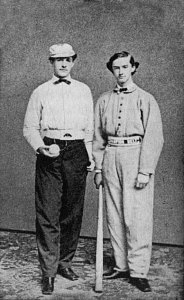
Archibald McClure Bush, class of 1867
Archibald McClure Bush (class of 1867) came to Andover with his cousin, James McClure (both pictured), and organized the Academy’s first official baseball team, now recognized as the first preparatory school “nine” in the nation. Bush was considered the best baseball player in the country during his time at Andover—and during his four years at Harvard. However, Bush’s passion for baseball would have unfortunate consequences. One morning, he and a friend skipped geometry to watch a ballgame in Boston. Principal Samuel H. Taylor expelled the two friends, along with several others who had cut classes that day. Enraged that a leader of their class had been expelled, in what would come to be known as The Great Baseball Rebellion, 25 of the remaining 42 members of the Class of 1867 purposely broke curfew that evening, and they, too, were expelled—and thus were unable to pass Yale’s entrance exam. The classmates hired tutors, studied all summer, and passed the exams for Harvard—where Bush was elected captain of the baseball team for three of his four years and never lost to Yale. On April 20, 1903, Andover’s Board of Trusteed unanimously approved a recommendation to reinstate the expelled students from the Class of 1867 in “good and regular standing.”
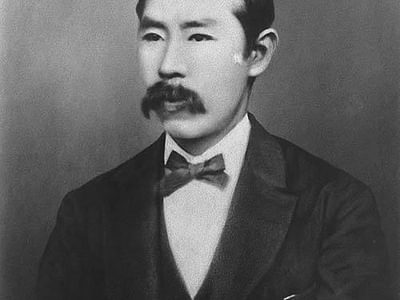
Joseph Hardy Neesima, class of 1867
In 1864, Joseph Hardy Neesima (class of 1867) broke Japan’s ban on overseas travel and headed for America as a stowaway. His transpacific journey originated in the port city of Hakodate in Hokkaido and culminated in Boston, assisted by sympathetic Russian and American seamen along the way. With the help of the captain of the freighter that secretly transported him, Neesima attended Andover and went on to became the first Japanese national to receive a degree from an American college (Amherst). Neesima was allowed to return to Japan in 1874, and he founded Doshisha University the following year. Reflecting on his Andover roots, physical education and extracurricular club sports occupied a central place in Neesima’s idea of a well-rounded liberal arts education – a revolutionary concept in Japan at the time. As such, a baseball team was organized at Doshisha in 1891, helping spark a passion for baseball in western Japan in the early decades of the twentieth century that continues today.

Sir Chentung Liang Cheng, class of 1882
Andover began its educational relationship with China more than 130 years ago when a handful of Chinese students were enrolled in 1878. One such student was Chentung Liang Cheng (class of 1882), who three years later starred in Andover’s 13-5 win at Exeter, tripling home two runs and doubling home another. Years later, shortly after accepting his post as Chinese minister to the United States, Sir Chentung met with U.S. President Theodore Roosevelt, who said an old friend told him the new Chinese minister played baseball for Andover and helped win a championship with a key hit in the 1880s. Sir Chentung happily confirmed the story, and Roosevelt asked who had been the best player on that Andover team. The new minister temporarily abandoned his diplomatic reserve and replied, simply, that he was. "From that moment the relations between President Roosevelt and myself became ten-fold stronger and closer," Liang Cheng said.
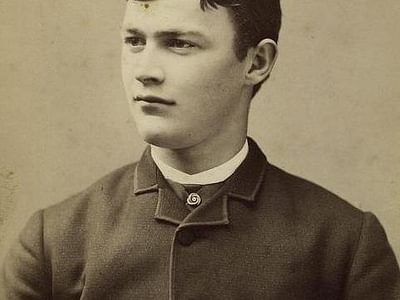
Bill Vinton, class of 1884
Bill Vinton (class of 1884) fanned 100 hitters as Andover’s team captain in 1884. That same year, at just 19 years old, Vinton made his Major League debut as a rookie fireballer for the National League’s Philadelphia Quakers. His rookie season turned out to be his best, pacing Philadelphia’s pitching staff with a 10-10 record and 2.23 ERA. Vinton went on to pitch for the Philadelphia Athletics and graduate from Yale University. He died at the age of 28 in 1893.
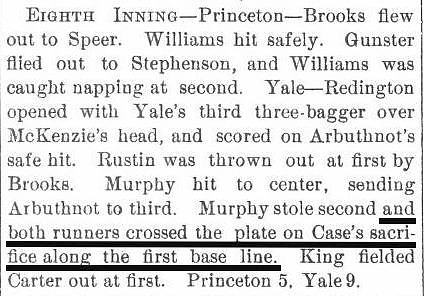
George B. Case, class of 1890
Leave it to an Andover graduate to come up with a baseball innovation. As team captain at Yale in 1894, George B. Case (Andover class of 1890) cooked up a guaranteed way to score a runner from third base without the ball leaving the infield, devising the first-ever “suicide squeeze” in that year’s Ivy League Championship game against Princeton. The squeeze play made its debut in Major League Baseball eight years later, and by that time Case had co-founded White & Case, which grew into one of the world's leading global law firms. In 1922, Case donated to Andover a sum not to exceed $80,000 for the construction of an indoor athletics fieldhouse still in use today – the Case Memorial Cage. Case wrote at the time to Andover’s Board of Trustees: “We thought that a building constructed, not only for the training of baseball teams, but for use in all sorts of ways during the seasons of inclement weather, would be an appropriate memorial.”
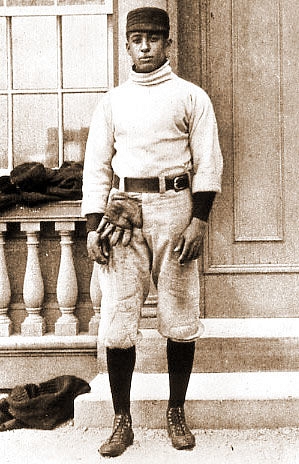
William Clarence Matthews, class of 1901
William Clarence Matthews ’01 was an outstanding shortstop at Andover and Harvard, later barred from Major League Baseball because he was African-American. Upon the recommendation of prominent African-American educator Booker T. Washington, Matthews found his way to Andover from Selma, Alabama and emerged as an athletic and academic star, captaining the baseball team and graduating second in his class. Andover’s student newspaper, The Phillipian, thanked Matthews in its June 19, 1901 edition “…for all that he has done for Andover in athletics, not only in baseball but in football and track, and especially for his heroic devotion to the honor of his school in playing the two decisive games with a disabled thumb.” At Harvard, Matthews' athletic abilities became known on a national stage. Scoring the winning run against archrival Yale in front of 9,000 fans highlighted his freshman year. He then led Harvard in hitting for three consecutive seasons, capping his efforts with a .400 batting average senior year. At least one Major League team, the Boston Nationals, attempted to sign him, as reported in the July 15, 1905 edition of The Boston Evening Traveler: “Captain Tenney has long been hunting for a lively second baseman…and after following the career of (Matthews) while at Harvard...he decided that William C. was just the laddybuck he needed." The article goes on to opine that since Matthews was a Harvard man, "certainly none of the National League players will object to breaking bread with him." Four days later The Boston Evening Transcript reported that "hot-headed southerners are so roiled" by Matthews that they'll form an outlaw Southern League if Matthews plays. The Atlanta Journal weighed in, deplorably describing Matthews as a "human chocolate drop," and asserting he "may be good enough for Harvard, but he isn't good enough for us." Matthews did play one minor league season in the independent Northern League, then went on to study law at Harvard and Boston University. He passed the bar in 1908 and practiced privately until 1912, when Theodore Roosevelt appointed him to the District Attorney's Office in Boston. After World War I Matthews became legal counsel to Marcus Garvey. During the 1924 Presidential election Matthews provided critical help to Calvin Coolidge's campaign, and he was rewarded with an appointment as Assistant U.S. Attorney General. Matthews was inducted posthumously into the National College Baseball Hall of Fame in 2014. The Ivy League Baseball Championship Trophy is named in his honor.
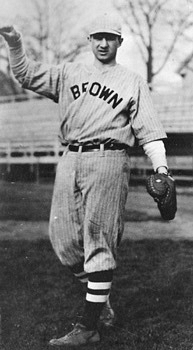
Walter “Wally” Snell, class of 1909
Walter Henry Snell ’09 was a baseball player turned scientist. Following his pro career as a catcher for the Boston Red Sox, Snell earned a Ph.D. in botany and went on to a distinguished career as a professor and coach at his alma mater, Brown University. His coaching career lasted from 1921-1939, including stints of five years as Brown’s varsity baseball coach from 1922-1926 and four years as freshman baseball coach from 1936-1939. He also was an assistant football coach from 1921-1939. He resigned his coaching duties in 1940 to devote more time to scientific research on forest plants and diseases.
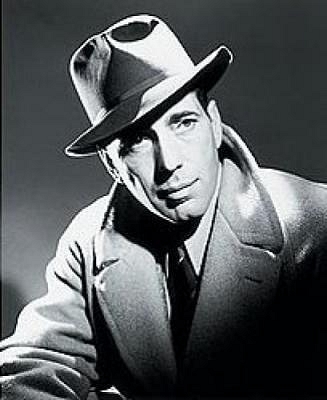
Humphrey Bogart, class of 1920
More than a half-century after his death, Humphrey Bogart ’20 remains an iconic star and an enduring symbol — celebrated at college film festivals and revival movie theaters, and immortalized on a United States postage stamp. The American Film Institute named him the country’s greatest male screen star, and Entertainment Weekly named him the top movie legend of all time, thanks to starring roles in, among a long list of iconic films, “The Maltese Falcon" [1941], "Casablanca" [1943], "Treasure of Sierra Madre" [1948], and "The African Queen" [1951]. That said, Bogart was known for his lifelong love affair with baseball. His father (Andover class of 1888) played football and baseball at Andover, and Bogart appeared in commercials encouraging people to attend Major League Baseball games at a time when the game’s executives feared the newly emerging medium of television would hurt gate receipts. “That’s baseball, and it’s my game,” Bogart said. “You know, you take your worries to the game, and you leave ‘em there. You yell like crazy for your guys. It’s good for your lungs, gives you a lift. A hot dog at the ballpark beats steak at the Ritz.”
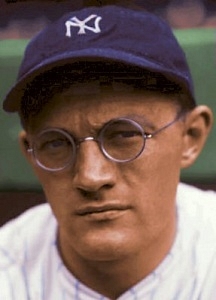
Johnny Broaca, class of 1929
The son of Lithuanian immigrants, growing up in a tenement apartment in nearby Lawrence, Mass., Johnny Broaca ’29 found his way to Andover and then Yale, acing his studies at two of the nation’s premier educational institutions. However, it was baseball that put him on the national map. The New York Yankees signed Broaca, a star pitcher, before he even graduated from Yale. In his rookie season in 1934, Broaca went 12–9. In 1935, he went 15–7. In 1936, the year the Yankees won the World Series, Broaca was 12–7 with an ERA of 4.24. Sadly, a defiant, self-destructive temperament left Broaca hanging on as a marginal major leaguer only five years later. He was out of baseball by age 31 and by 36 was doing menial labor and living, as he chose to do for the rest of his life, as a recluse.
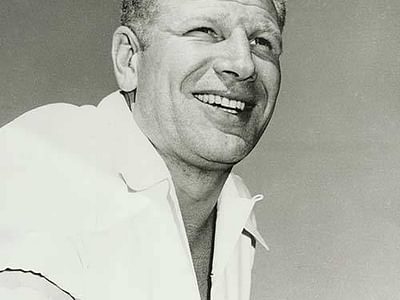
Bill Veeck, class of 1932
Bill Veeck ’32 operated a trio of Major League Baseball teams – the Cleveland Indians, St. Louis Browns, and Chicago White Sox – and owned the White Sox from 1959-61 and again from 1976-80, purchasing the team a second time after the franchise was near bankruptcy and on the verge of moving to Seattle. Considered a promotional genius, Veeck introduced the exploding scoreboard at Chicago’s Comiskey Park and was the first to print players’ names on the backs of uniform jerseys. Veeck’s most memorable stunt occurred in August of 1951, when as owner of the financially strapped Browns, he signed Eddie Gaedel, a 3-foot-7-inch, 65-pound dwarf, and inserted him as a pinch hitter in the second game of a Sunday doubleheader. Veeck would later sign the American League’s first African-American player, Larry Doby, to a contract with the Cleveland Indians, and the late Satchel Paige, a legendary African-American pitcher who played for him in both Cleveland and St. Louis. Although an accident cost him his right leg, Veeck refused the use of crutches, even when participating in the historic civil rights march in Selma, Alabama in March of 1965. Veeck was enshrined in the National Baseball Hall of Fame shortly after his death in 1986.
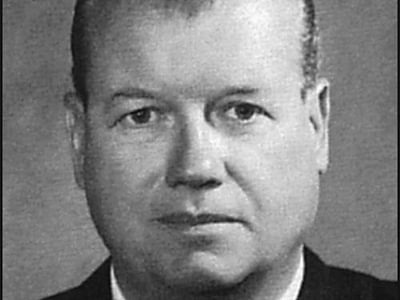
Robert Uihlein, Jr., class of 1934
Robert Uihlein, Jr. ’34 served as president of the Schlitz Brewing Company from 1961-76 and was one of the four leading men – as part of an investment group that included former Commissioner of Major League Baseball Allan “Bud” Selig – that brought the Seattle Pilots baseball team to Milwaukee in April of 1970. Uihlein was instrumental in naming Milwaukee’s new Major League Baseball franchise the Brewers, honoring Milwaukee's longstanding beer-brewing tradition.
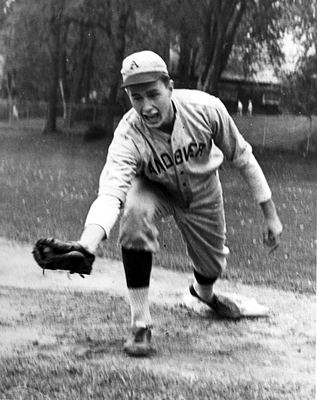
President George H. W. Bush, class of 1942
After two terms as Vice President under Ronald Reagan, George Herbert Walker “Poppy” Bush ’42 earned election as the 41st President of the United States, serving from 1989 to 1993. An avid sportsman, Bush played first base and captained the 1942 Andover baseball team, earning praise in the June 5, 1942 edition of Andover’s student newspaper, The Phillipian: “Poppy Bush [is] a very dependable hitter and a really slick fielder…Poppy at last count led the team in doubles and runs batted in and is second to Tuck Asbury in stolen bases.” Bush ignored the advice of Secretary of War Henry L. Stimson, Andover’s 1942 commencement speaker, that he and his classmates finish their education before considering military service. He enlisted instead, postponing college to become the youngest commissioned Navy pilot in World War II. President Bush eventually rekindled his passion for baseball as a first baseman at Yale, leading the Bulldogs to back-to-back trips to the College World Series. The National College Baseball Hall of Fame in Lubbock, Texas is named in President Bush’s honor.
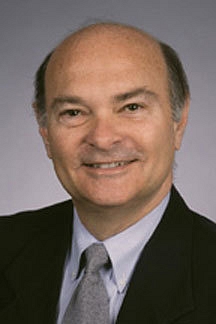
Eli Jacobs, class of 1957
After graduating from Andover (class of '57), Yale, and Yale Law School, Elie Jacobs '57 remained tight-lipped about his wealth despite venture capital acquisitions that skyrocketed his net worth into the hundreds of millions. That anonymity came to a halt when he purchased the Baltimore Orioles for $70 million in 1988. His first order of business was to build a new stadium "with soul," like Wrigley Field in Chicago and Fenway Park in Boston, and he did just that, with the construction of Oriole Park at Camden Yards. The Orioles ascended from the worst team in baseball to just two games behind the Blue Jays in Jacobs’ first year, but sunk back toward the bottom of the league the next two seasons. Jacobs unloaded the team for a cool $173 million in 1993; the previous record price for a baseball team had been $106 million.
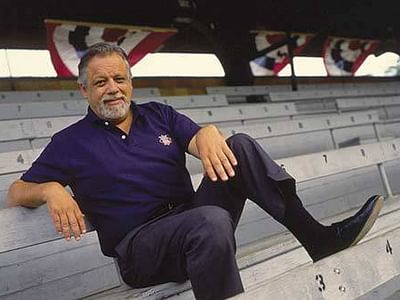
A. Bartlett Giamatti, class of 1956
Angelo Bartlett "Bart" Giamatti ’56 didn’t play baseball as a student at Andover, but he carried a true passion for the game that remained with him his entire life. Following a nine-year tenure as President of Yale University, Giamatti was appointed the seventh commissioner of Major League Baseball, earning a reputation for preserving baseball's traditions, values, and integrity. His commissionership is perhaps best know for the agreement struck with then Cincinnati Reds manager and baseball's all-time hit leader Pete Rose that was tantamount to a lifetime suspension. The agreement came after a lengthy investigation and court battle regarding gambling by Rose. “There are a lot of people who know me who can't understand for the life of them why I would go to work on something as unserious as baseball,” Giamatti once said. “If they only knew.”
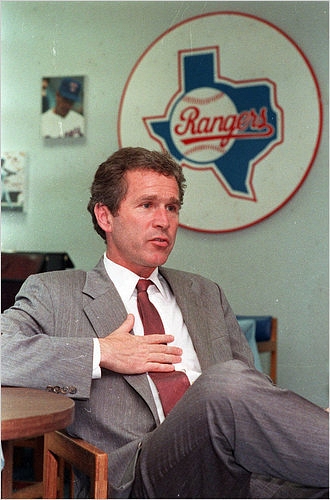
President George W. Bush, class of 1964
George W. Bush ’64 is perhaps best known for his distinguished career in politics, earning election as Governor of Texas and then as 43rd President of the United States, but President Bush also served as minority owner of Major League Baseball’s Texas Rangers from 1989 to 1998. The Houston Chronicle reported at the time of the purchase, “He’s a baseball romantic. He sees the sport in a historical context. He does not think America would be America without baseball.” The George W. Bush Presidential Library includes an exhibit called Baseball: America’s Presidents, America’s Pastime. It celebrates the sport’s role in American history.
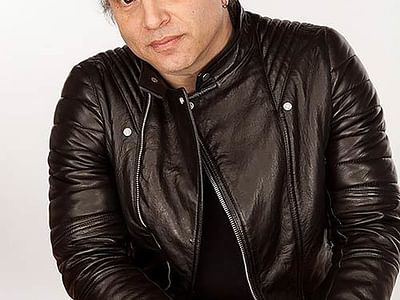
H.G. "Buzz" Bissinger, class of 1972
Buzz Bissinger ’72 is perhaps best known for his best-selling book Friday Night Lights: A Town, A Team and A Dream, which inspired a movie and an award-winning, critically acclaimed television series. That said, Bissinger is no mere sportswriter. He is, in fact, one of the nation’s most honored and distinguished investigative journalists: winner of the Pulitzer Prize, the Livingston Award, the American Bar Association Silver Gavel Award and the National Headliners Award, among others; His passion for baseball led him to write the New York Times bestseller Three Nights in August, which chronicles a 2003 series between the St. Louis Cardinals and the Chicago Cubs through the perspective of Cardinals manager Tony La Russa. Bissinger says, “Despite the success of Friday Night Lights, I love baseball far more than football. And the willingness of Tony La Russa to give me unprecedented access to a major league clubhouse in the form of the 2003 St. Louis Cardinals was too good to pass up.”
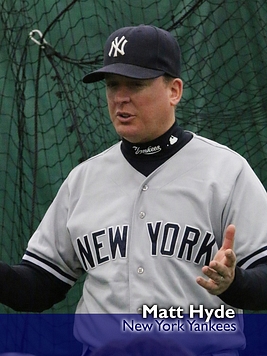
Matt Hyde, class of 1992
Matt Hyde ’92 has served nearly a decade as Northeast Area Scout for the New York Yankees, covering New England, New York, and Pennsylvania, while serving as scout liaison to the Cape Cod Baseball League and managing the New York Yankees-sponsored East Coast Professional Showcase and Northeast Area Code teams. A four-year letter-winner as a catcher at the University of Michigan, Hyde worked as an assistant coach at Michigan, Harvard, and Boston College, and spent summers coaching Chatham, Brewster, and Falmouth of the Cape Cod League before seguing to a career in pro scouting. Hyde remains a close friend of Andover baseball and is extremely generous with his time mentoring players and coaches during frequent campus visits.
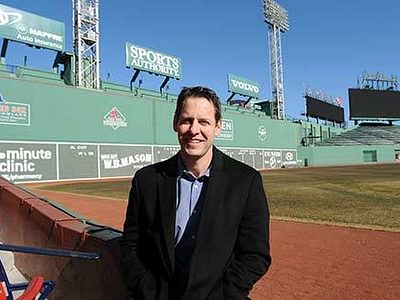
Gus Quattlebaum, class of 1993
Currently the Assistant Director of Professional and International Scouting for the Boston Red Sox, Gus Quattlebaum ’93 was one of the most feared sluggers in college baseball history (as a senior at Davidson College, Quattlebaum slugged four homers, had six hits, drove in 10 runs, and set an NCAA single-game record with 18 total bases in a 1997 win over Division I rival Virginia Commonwealth, and his 35 career home runs remain the second most in Davidson College history). He previously served as the Red Sox assistant director of amateur scouting, began his career as a player development intern for the Montreal Expos, and served as a scout for the New York Yankees and Baltimore Orioles.
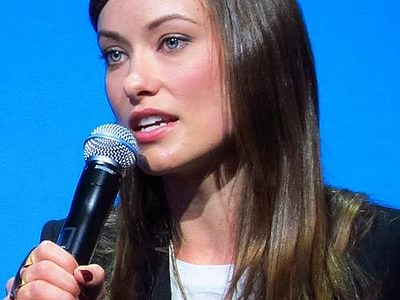
Olivia Wilde, class of 2002
Olivia Wilde '02 is an actress, producer, model, and humanitarian activist who's appeared in a slew of Hollywood movies, including Tron: Legacy, The Incredible Burt Wonderstone, and The Lazarus Effect. She turned her attention toward baseball, however, serving as executive producer for a documentary called Baseball in the Time of Cholera. The film follows young Joseph Avyns, a boy living in Port au Prince, Haiti, who loves baseball and dreams of making it to the Major Leagues (unfortunately his home nation suffers an outbreak of cholera that claims the lives of hundreds of thousands of victims). Wilde and her husband, actor Jason Sudeikis, team up each year with the Kansas City Royals for a celebrity softball event that raises money for the Children's Mercy Cancer Center.
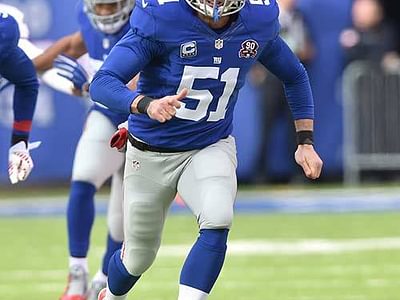
Zak DeOssie, class of 2003
Zak DeOssie ’03 grew up steeped in football – his dad, Steve, played for three NFL teams – but Zak was a three-sport standout during his four years at Andover, captaining the basketball and football teams and manning first base for the baseball team. At Brown University, DeOssie switched from quarterback to linebacker and tallied 315 career tackles (187 solo), 10.5 sacks, and 36.5 tackles for loss, earning All-America honors and three straight All-Ivy selections. He was selected in the 2007 NFL draft and he went on to earn a pair of Super Bowl Rings with the New York Giants, both in victories over the New England Patriots, who were coached by fellow Andover alum Bill Belichick ’71. DeOssie was named special-teams captain and called the coin toss in Super Bowl XLVI. He is an elected member of the NFL Players Association Executive Committee.

Cory Schneider, class of 2004
Cory Schneider ’04 captained the baseball and hockey teams at Andover before emerging as one of the most decorated goaltenders in Boston College history. BC’s career leader in shutouts, Schneider led the Eagles to two Frozen Fours and a pair of National Championship games. The Vancouver Canucks selected Schneider with the 26th pick in the 2004 NHL Draft, and Schneider remained with Vancouver until he was traded to the New Jersey Devils in 2013. Schneider earned the William M. Jennings Trophy in 2011 after leading all NHL goaltenders in goals-against average.
